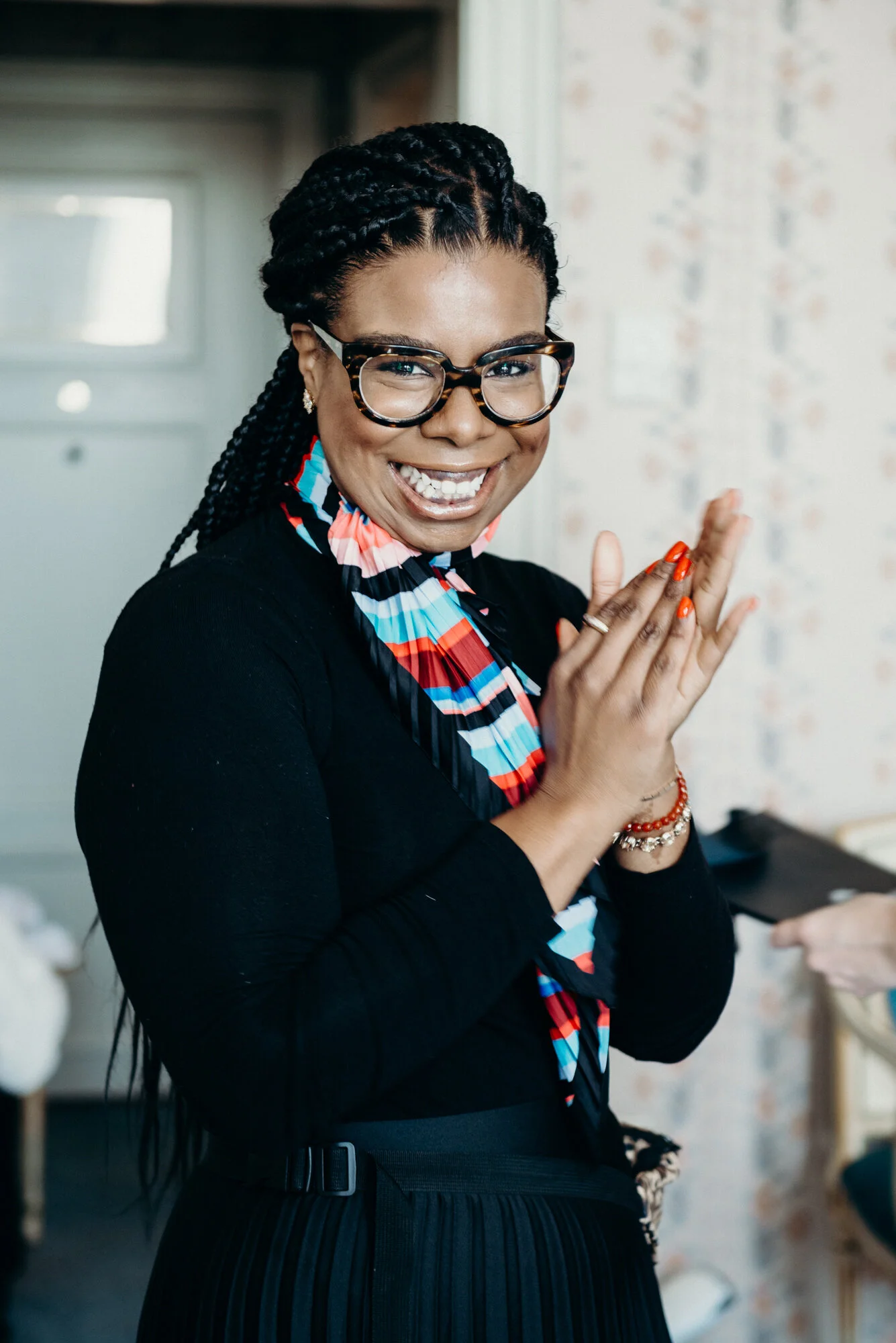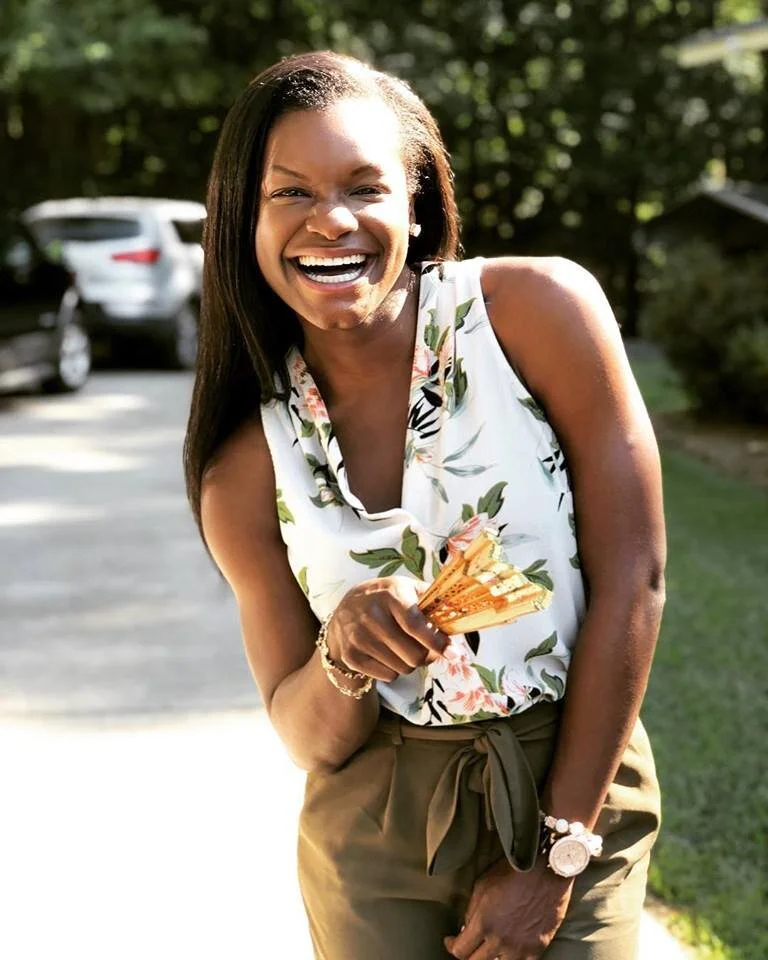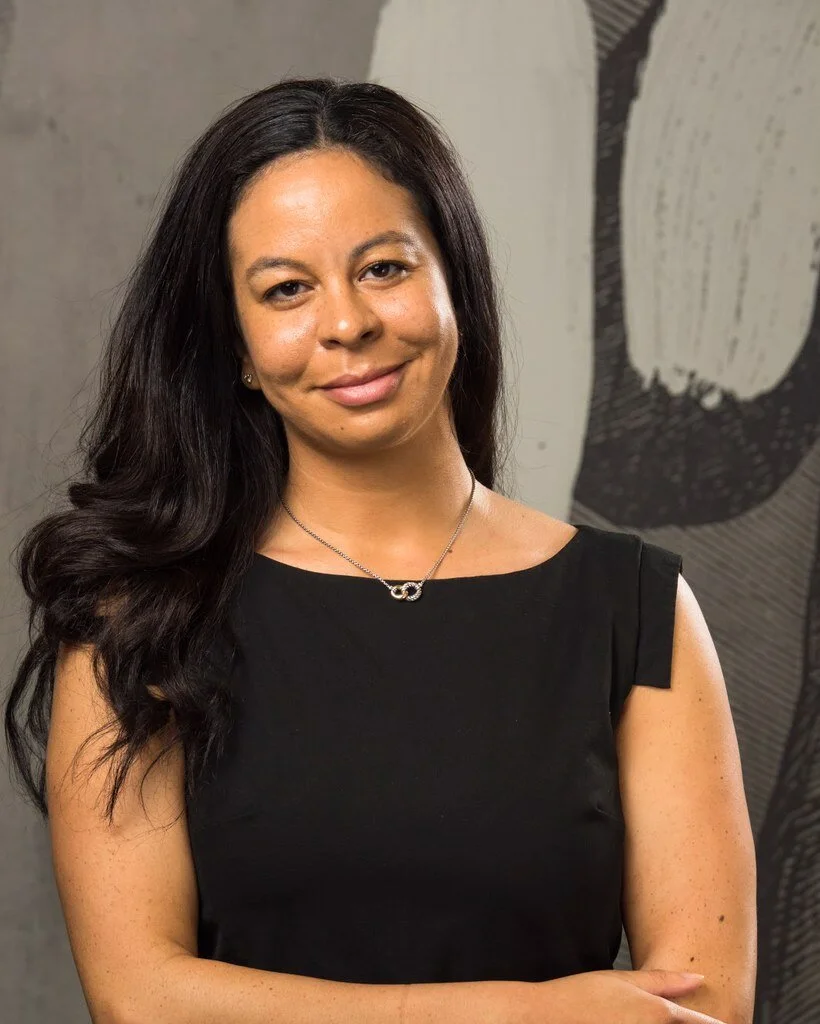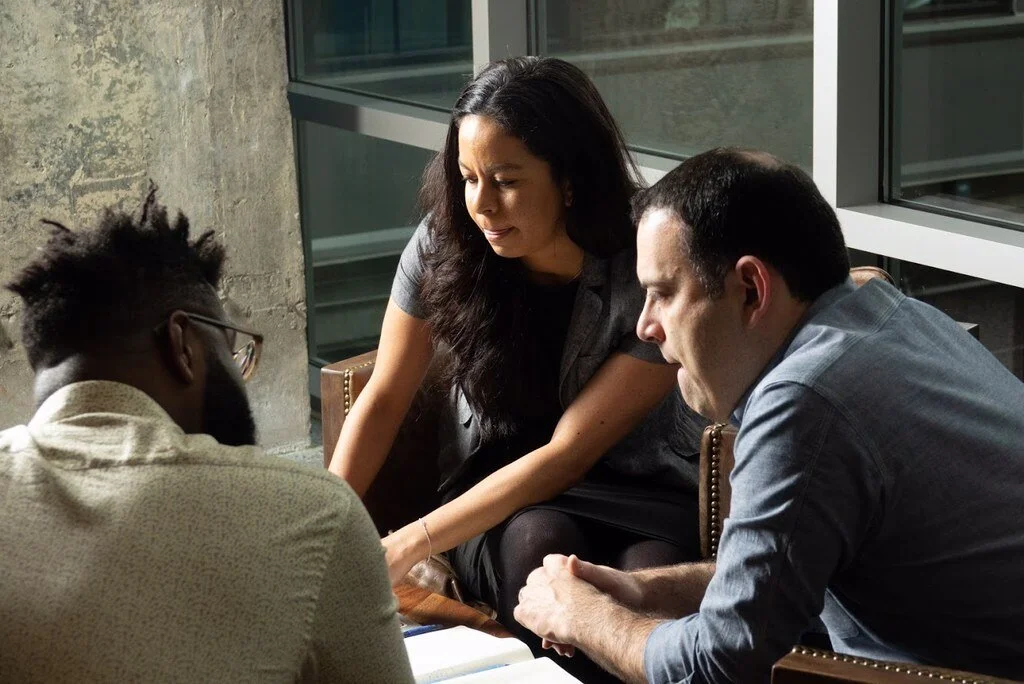Fallon Carter, Owner + Principal Planner, Fallon Carter Weddings + Events
Hi, Fallon! You own a weddings and events business. Can you share more on what that looks like?
I’m an event planner, specializing in destination events. I coordinate weddings and other social events. I like to consider my work as creating experiences that people never realized they could have.
How would you describe the path that brought you to the events space?
I was fresh out of college, and I had a finance job at an aerospace company. A friend of mine got married in Paris, and when I attended as a guest, she needed my help actually pulling it off. I jumped in, and I ended up helping to pull off this incredible wedding. I realized, wow -- I’m good at this! In particular, I realized that I’m good at managing chaos. So it occurred to me then that being an event planner may be an opportunity for me. Originally, I wanted to go into policy and then law school and change the world. But I recognized weddings as an easier opportunity to create impact for people, because you don’t have to manipulate Congress. (laughs) And it has worked out, and now it’s been over ten years.
And in that ten years, was there a particular moment when you realized you had really hit your stride?
Yes! I managed an event for a major corporate client that required us to work with 1,200 guests. On the day-of as the guests are arriving, the fire department shows up asking for a permit the client hadn’t secured. They were threatening to shut us down. I was absolutely panicked. So I turned on the charm, and sweet-talked one of the firemen and managed to get us off the hook. I got all of these beautiful people into the party and the client nor the guests ever knew anything happened! Moments like that just make you feel like you could do anything. Even just living in New York City, and keeping the lights on, being able to live alone in my amazing apartment. I feel like, wow, look what I have created for myself.
What part of your job feels most fun?
Aside from the international travel and just being able to visit crazy, gorgeous places? (laughs) Honestly, I think my favorite thing is to take a client’s idea and crank it up a thousand notches. Being able to say, “That’s a good idea, but what if we spun it around and did this other thing?” They’re always so blown away.
You create really incredible events. Can you share a bit more about your approach? How do you pull it off?
The first thing I do when organizing an event is set up my timeline. I get the day organized and ask the client what they think. One thing I always ask is “What’s the surprise and what’s the delight for your guest?” This is something they don’t often think about that can take their event to the next level, creating the optimal guest experience. I always try to think from their perspective. When they walk into the venue, what do they smell? What do they taste? What do they see? It should be like theatre. It should be a multi-sensory experience.
How have you evolved as an entrepreneur?
It’s not for everyone but it’s so exciting. If you can figure out how to manage your business and hone it, it can be fruitful. I can’t say I want to still plan weddings when I’m 70 years old. I get excited about multiple, different ideas. As I get more comfortable in my current position, I find myself seeking ways to be more uncomfortable. I want to learn how to try new and different things. So I am now trying to keep an eye out for other opportunities where I can take the knowledge I’ve learned from building this business -- since I now know that I can build a business -- and build other businesses.
What makes you uniquely suited to do what you do?
My feathers don’t ruffle easily. I’m fairly calm -- I have a good temperament. I’m not overly emotional, which is key when I’m coordinating weddings where everyone is extremely emotional. (laughs) I’m also decisive. I like puzzles and math so coordinating an event with 20 different vendors and different call times and bringing things in and loading things up and figuring out the best way to do what we need to do with the time we have -- yeah, I love it.
And, I also like production. For every event, I’m creating a guest experience. So when I am thinking about the timeline, I’m zeroing in on potential places where there may be dead time. Then I’m thinking, Okay, people are finishing dinner, they’re looking for something to do. How we can get the guests up and dancing?
How is the industry for Black women?
There are tons of Black women doing weddings, but there aren’t many doing luxury -- weddings that are well over $100,000. A lot of people are getting more open-minded now, too, and I find that a lot of people are actually intrigued by a Black woman doing luxury events. It almost attracts clients, and I honestly don’t feel invisible or overlooked at all. They see the work I’ve produced, the publications I’ve been featured in, and realize that I’m someone they want to work with.
There are definitely clients who will think you don’t know what you’re doing or who won’t trust your vision at first. I’ll go into an event and someone will “mansplain” as though I haven’t been doing this for 11 years. Or they will be looking for the person in charge and walk right past me. I’m not concerned. If anything it feels like an opportunity to show them what I can do. I also try, whenever I can, to bring another brown or Black person into the space and create an opportunity for one of us. Even someone younger, to show them the ropes.
When you think about your career trajectory, what advice do you think you’d share with a young black woman starting out?
I think as Black women in professional spaces, sometimes we have to be so many people within the span of a millisecond. Do your best at being your best and learning who you are. My real success came when I found a space where I could be me in every way. You can be anything on the planet you want to be, but focus on being you -- fully you -- first. Love yourself fully. People will always try to tell you that they know who you are, and what you do. But I promise you won’t care as much if you know yourself deeply.
When you think about your future, what excites you most?
One thing that has been on my mind a while is being part of Detroit’s revitalization. I know I want to own a hotel that speaks to the Great Migration and the work done by the minority community to build up the city. I’d love to be a part of recreating Black Bottom. Hospitality is my heart and I want to step into that passion to help impact a historically important space for Black people. I have a couple of apps I want to work on, too. I’d love to get into philanthropy.
Weddings have been great and have taught me about different kinds of systems, and how to manage through those systems. I have a lot of confidence after building this business and it has given me more ideas and better tools to execute on those ideas. I’ve learned more, I have more resources, and I have so many ideas of other things I want to do now.
Please share this post with a friend, and follow us at @BlackWomenWorkIG!




